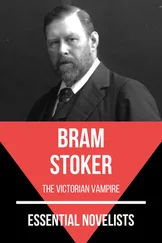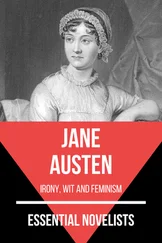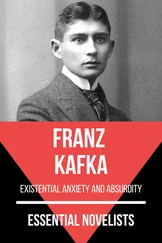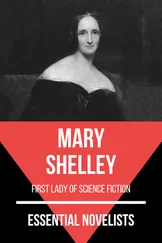August Nemo - Essential Novelists - Joseph Conrad
Здесь есть возможность читать онлайн «August Nemo - Essential Novelists - Joseph Conrad» — ознакомительный отрывок электронной книги совершенно бесплатно, а после прочтения отрывка купить полную версию. В некоторых случаях можно слушать аудио, скачать через торрент в формате fb2 и присутствует краткое содержание. Жанр: unrecognised, на английском языке. Описание произведения, (предисловие) а так же отзывы посетителей доступны на портале библиотеки ЛибКат.
- Название:Essential Novelists - Joseph Conrad
- Автор:
- Жанр:
- Год:неизвестен
- ISBN:нет данных
- Рейтинг книги:3 / 5. Голосов: 1
-
Избранное:Добавить в избранное
- Отзывы:
-
Ваша оценка:
- 60
- 1
- 2
- 3
- 4
- 5
Essential Novelists - Joseph Conrad: краткое содержание, описание и аннотация
Предлагаем к чтению аннотацию, описание, краткое содержание или предисловие (зависит от того, что написал сам автор книги «Essential Novelists - Joseph Conrad»). Если вы не нашли необходимую информацию о книге — напишите в комментариях, мы постараемся отыскать её.
For this book, the literary critic August Nemo has chosen the two most important and meaningful novels ofJoseph Conradwhich are Heart of Darkness andLord Jim.
After a sea-faring career in the French and British merchant marines, Joseph Conrad wrote short stories and novels which combined his experiences in remote places with an interest in moral conflict and the dark side of human nature.
Novels selected for this book:
– Heart of Darkness
– Lord Jim
This is one of many books in the seriesEssential Novelists. If you liked this book, look for the other titles in the series, we are sure you will like some of the authors.
Essential Novelists - Joseph Conrad — читать онлайн ознакомительный отрывок
Ниже представлен текст книги, разбитый по страницам. Система сохранения места последней прочитанной страницы, позволяет с удобством читать онлайн бесплатно книгу «Essential Novelists - Joseph Conrad», без необходимости каждый раз заново искать на чём Вы остановились. Поставьте закладку, и сможете в любой момент перейти на страницу, на которой закончили чтение.
Интервал:
Закладка:
"In about forty-five seconds I found myself again in the waiting-room with the compassionate secretary, who, full of desolation and sympathy, made me sign some document. I believe I undertook amongst other things not to disclose any trade secrets. Well, I am not going to.
"I began to feel slightly uneasy. You know I am not used to such ceremonies, and there was something ominous in the atmosphere. It was just as though I had been let into some conspiracy—I don't know—something not quite right; and I was glad to get out. In the outer room the two women knitted black wool feverishly. People were arriving, and the younger one was walking back and forth introducing them. The old one sat on her chair. Her flat cloth slippers were propped up on a foot-warmer, and a cat reposed on her lap. She wore a starched white affair on her head, had a wart on one cheek, and silver-rimmed spectacles hung on the tip of her nose. She glanced at me above the glasses. The swift and indifferent placidity of that look troubled me. Two youths with foolish and cheery countenances were being piloted over, and she threw at them the same quick glance of unconcerned wisdom. She seemed to know all about them and about me too. An eerie feeling came over me. She seemed uncanny and fateful. Often far away there I thought of these two, guarding the door of Darkness, knitting black wool as for a warm pall, one introducing, introducing continuously to the unknown, the other scrutinizing the cheery and foolish faces with unconcerned old eyes. Ave! Old knitter of black wool. Morituri te salutant. Not many of those she looked at ever saw her again—not half, by a long way.
"There was yet a visit to the doctor. 'A simple formality,' assured me the secretary, with an air of taking an immense part in all my sorrows. Accordingly a young chap wearing his hat over the left eyebrow, some clerk I suppose,—there must have been clerks in the business, though the house was as still as a house in a city of the dead,—came from somewhere up-stairs, and led me forth. He was shabby and careless, with ink-stains on the sleeves of his jacket, and his cravat was large and billowy, under a chin shaped like the toe of an old boot. It was a little too early for the doctor, so I proposed a drink, and thereupon he developed a vein of joviality. As we sat over our vermouths he glorified the Company's business, and by-and-by I expressed casually my surprise at him not going out there. He became very cool and collected all at once. 'I am not such a fool as I look, quoth Plato to his disciples,' he said sententiously, emptied his glass with great resolution, and we rose.
"The old doctor felt my pulse, evidently thinking of something else the while. 'Good, good for there,' he mumbled, and then with a certain eagerness asked me whether I would let him measure my head. Rather surprised, I said Yes, when he produced a thing like calipers and got the dimensions back and front and every way, taking notes carefully. He was an unshaven little man in a threadbare coat like a gaberdine, with his feet in slippers, and I thought him a harmless fool. 'I always ask leave, in the interests of science, to measure the crania of those going out there,' he said. 'And when they come back, too?' I asked. 'Oh, I never see them,' he remarked; 'and, moreover, the changes take place inside, you know.' He smiled, as if at some quiet joke. 'So you are going out there. Famous. Interesting too.' He gave me a searching glance, and made another note. 'Ever any madness in your family?' he asked, in a matter-of-fact tone. I felt very annoyed. 'Is that question in the interests of science too?' 'It would be,' he said, without taking notice of my irritation, 'interesting for science to watch the mental changes of individuals, on the spot, but . . .' 'Are you an alienist?' I interrupted. 'Every doctor should be—a little,' answered that original, imperturbably. 'I have a little theory which you Messieurs who go out there must help me to prove. This is my share in the advantages my country shall reap from the possession of such a magnificent dependency. The mere wealth I leave to others. Pardon my questions, but you are the first Englishman coming under my observation. . . .' I hastened to assure him I was not in the least typical. 'If I were,' said I, 'I wouldn't be talking like this with you.' 'What you say is rather profound, and probably erroneous,' he said, with a laugh. 'Avoid irritation more than exposure to the sun. Adieu. How do you English say, eh? Good-by. Ah! Good-by. Adieu. In the tropics one must before everything keep calm.' . . . He lifted a warning forefinger. . . . 'Du calme, du calme. Adieu.'
"One thing more remained to do—say good-by to my excellent aunt. I found her triumphant. I had a cup of tea—the last decent cup of tea for many days—and in a room that most soothingly looked just as you would expect a lady's drawing-room to look, we had a long quiet chat by the fireside. In the course of these confidences it became quite plain to me I had been represented to the wife of the high dignitary, and goodness knows to how many more people besides, as an exceptional and gifted creature—a piece of good fortune for the Company—a man you don't get hold of every day. Good heavens! and I was going to take charge of a two-penny-halfpenny river-steamboat with a penny whistle attached! It appeared, however, I was also one of the Workers, with a capital—you know. Something like an emissary of light, something like a lower sort of apostle. There had been a lot of such rot let loose in print and talk just about that time, and the excellent woman, living right in the rush of all that humbug, got carried off her feet. She talked about 'weaning those ignorant millions from their horrid ways,' till, upon my word, she made me quite uncomfortable. I ventured to hint that the Company was run for profit.
"'You forget, dear Charlie, that the laborer is worthy of his hire,' she said, brightly. It's queer how out of touch with truth women are. They live in a world of their own, and there had never been anything like it, and never can be. It is too beautiful altogether, and if they were to set it up it would go to pieces before the first sunset. Some confounded fact we men have been living contentedly with ever since the day of creation would start up and knock the whole thing over.
"After this I got embraced, told to wear flannel, be sure to write often, and so on—and I left. In the street—I don't know why—a queer feeling came to me that I was an impostor. Odd thing that I, who used to clear out for any part of the world at twenty-four hours' notice, with less thought than most men give to the crossing of a street, had a moment—I won't say of hesitation, but of startled pause, before this commonplace affair. The best way I can explain it to you is by saying that, for a second or two, I felt as though, instead of going to the center of a continent, I were about to set off for the center of the earth.
"I left in a French steamer, and she called in every blamed port they have out there, for, as far as I could see, the sole purpose of landing soldiers and custom-house officers. I watched the coast. Watching a coast as it slips by the ship is like thinking about an enigma. There it is before you—smiling, frowning, inviting, grand, mean, insipid, or savage, and always mute with an air of whispering, 'Come and find out.' This one was almost featureless, as if still in the making, with an aspect of monotonous grimness. The edge of a colossal jungle, so dark-green as to be almost black, fringed with white surf, ran straight, like a ruled line, far, far away along a blue sea whose glitter was blurred by a creeping mist. The sun was fierce, the land seemed to glisten and drip with steam. Here and there grayish-whitish specks showed up, clustered inside the white surf, with a flag flying above them perhaps. Settlements some centuries old, and still no bigger than pin-heads on the untouched expanse of their background. We pounded along, stopped, landed soldiers; went on, landed custom-house clerks to levy toll in what looked like a God-forsaken wilderness, with a tin shed and a flag-pole lost in it; landed more soldiers—to take care of the custom-house clerks, presumably. Some, I heard, got drowned in the surf; but whether they did or not, nobody seemed particularly to care. They were just flung out there, and on we went. Every day the coast looked the same, as though we had not moved; but we passed various places—trading places—with names like Gran' Bassam Little Popo, names that seemed to belong to some sordid farce acted in front of a sinister backcloth. The idleness of a passenger, my isolation amongst all these men with whom I had no point of contact, the oily and languid sea, the uniform somberness of the coast, seemed to keep me away from the truth of things, within the toil of a mournful and senseless delusion. The voice of the surf heard now and then was a positive pleasure, like the speech of a brother. It was something natural, that had its reason, that had a meaning. Now and then a boat from the shore gave one a momentary contact with reality. It was paddled by black fellows. You could see from afar the white of their eyeballs glistening. They shouted, sang; their bodies streamed with perspiration; they had faces like grotesque masks—these chaps; but they had bone, muscle, a wild vitality, an intense energy of movement, that was as natural and true as the surf along their coast. They wanted no excuse for being there. They were a great comfort to look at. For a time I would feel I belonged still to a world of straightforward facts; but the feeling would not last long. Something would turn up to scare it away. Once, I remember, we came upon a man-of-war anchored off the coast. There wasn't even a shed there, and she was shelling the bush. It appears the French had one of their wars going on thereabouts. Her ensign dropped limp like a rag; the muzzles of the long eight-inch guns stuck out all over the low hull; the greasy, slimy swell swung her up lazily and let her down, swaying her thin masts. In the empty immensity of earth, sky, and water, there she was, incomprehensible, firing into a continent. Pop, would go one of the eight-inch guns; a small flame would dart and vanish, a little white smoke would disappear, a tiny projectile would give a feeble screech—and nothing happened. Nothing could happen. There was a touch of insanity in the proceeding, a sense of lugubrious drollery in the sight; and it was not dissipated by somebody on board assuring me earnestly there was a camp of natives—he called them enemies!—hidden out of sight somewhere.
Читать дальшеИнтервал:
Закладка:
Похожие книги на «Essential Novelists - Joseph Conrad»
Представляем Вашему вниманию похожие книги на «Essential Novelists - Joseph Conrad» списком для выбора. Мы отобрали схожую по названию и смыслу литературу в надежде предоставить читателям больше вариантов отыскать новые, интересные, ещё непрочитанные произведения.
Обсуждение, отзывы о книге «Essential Novelists - Joseph Conrad» и просто собственные мнения читателей. Оставьте ваши комментарии, напишите, что Вы думаете о произведении, его смысле или главных героях. Укажите что конкретно понравилось, а что нет, и почему Вы так считаете.












